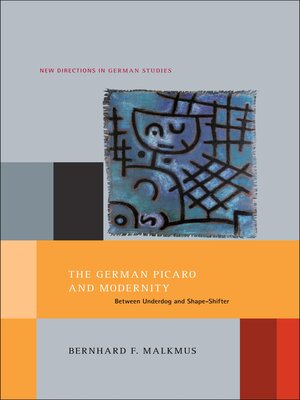The German Picaro and Modernity
ebook ∣ Between Underdog and Shape-Shifter · New Directions in German Studies
By Bernhard Malkmus

Sign up to save your library
With an OverDrive account, you can save your favorite libraries for at-a-glance information about availability. Find out more about OverDrive accounts.
Find this title in Libby, the library reading app by OverDrive.



Search for a digital library with this title
Title found at these libraries:
| Loading... |
The German Pícaro and Modernity reads the re-emergence of the picaresque narrative in twentieth-century German-language writing as an expression of modernity and its social imaginaries.
Malkmus argues that the picaresque, whose origins date back to the Spanish Renaissance and the Baroque Age, re-emerged as a reflection both of Germany's explosive modernizing processes between 1880 and 1930 and of the most barbarous implosion of modern civilization under National Socialism. Another reason for the fertility of this literary form at that particular cultural moment is rooted in the complexities of German-Jewish relations and the history of Jewish assimilation in central Europe. A considerable number of authors who used the picaresque form in the twentieth century are from a Jewish background, and Malkmus demonstrates how the picaresque narrative template also offers a medium for German-Jewish self-reflection. In highlighting these connections, he contributes not only to scholarship in European literature, but also but also to our understanding of major social, economic and political issues at stake in modernity
Malkmus argues that the picaresque, whose origins date back to the Spanish Renaissance and the Baroque Age, re-emerged as a reflection both of Germany's explosive modernizing processes between 1880 and 1930 and of the most barbarous implosion of modern civilization under National Socialism. Another reason for the fertility of this literary form at that particular cultural moment is rooted in the complexities of German-Jewish relations and the history of Jewish assimilation in central Europe. A considerable number of authors who used the picaresque form in the twentieth century are from a Jewish background, and Malkmus demonstrates how the picaresque narrative template also offers a medium for German-Jewish self-reflection. In highlighting these connections, he contributes not only to scholarship in European literature, but also but also to our understanding of major social, economic and political issues at stake in modernity






